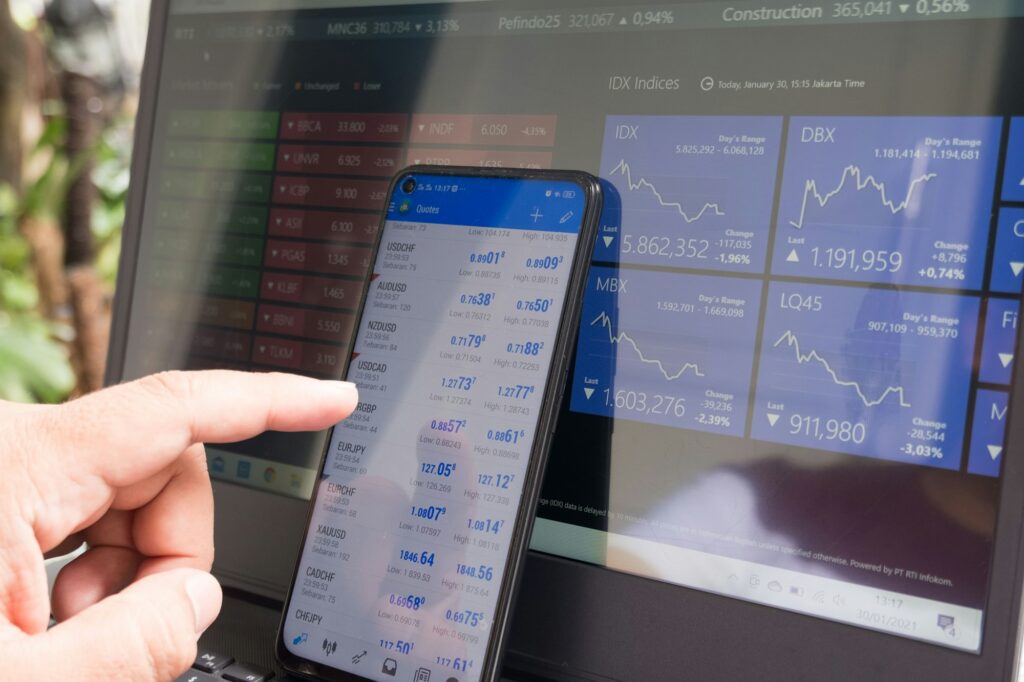
Is forex trading legal in India in 2024?
Yes, forex trading will be legal in India in 2024, but there are specific regulations and restrictions in place. The Reserve Bank of India (RBI) and the Securities and Exchange Board of India (SEBI) oversee and regulate forex trading activities.
Here are some key points about the legality of forex trading in India:
- Currency Pairs: Indian residents are allowed to trade only in currency pairs that include the Indian Rupee (INR). The permitted pairs are USD/INR, EUR/INR, GBP/INR, and JPY/INR.
- Regulated Brokers: Forex trading must be conducted through brokers that are registered with SEBI. Trading with unregulated or offshore brokers is illegal.Is forex trading legal in India in 2024?
- Exchange Platforms: Forex trading in India must be done on recognised exchanges like the National Stock Exchange (NSE), Bombay Stock Exchange (BSE), and Multi Commodity Exchange (MCX).
- Leveraging: There are limits on the amount of leverage that can be used in forex trading to ensure traders do not take excessive risks.
- Compliance: Traders must comply with the Foreign Exchange Management Act (FEMA) guidelines and any other relevant regulations.
By adhering to these regulations, individuals can legally engage in forex trading within the boundaries set by Indian authorities.
Regulatory Framework:
- Reserve Bank of India (RBI): The RBI regulates the foreign exchange market in India under the Foreign Exchange Management Act (FEMA), 1999. It ensures that forex transactions are conducted in a manner that is consistent with India’s economic policies.Is forex trading legal in India in 2024?
- Securities and Exchange Board of India (SEBI): SEBI regulates the trading of currency futures and options contracts on recognised stock exchanges. It ensures market integrity and protects investors’ interests.Is forex trading legal in India in 2024?
Types of Forex Trading Allowed:
- Currency Futures and Options: Indian residents can trade currency futures and options on recognised exchanges like the NSE, BSE, and MCX-SX. These contracts must involve the Indian rupee.Is forex trading legal in India in 2024?
- Retail Forex Trading: Direct retail forex trading in international currencies is restricted. Indian residents cannot trade forex on international platforms or with brokers that are not registered with SEBI. This restriction aims to prevent capital outflows and protect investors from fraud and high-risk trading practices.
Platforms and Brokers
- Recognised Exchanges: Forex trading in India can only be conducted on recognised exchanges such as the National Stock Exchange (NSE), Bombay Stock Exchange (BSE), and Multi Commodity Exchange (MCX). These exchanges provide a regulated environment for trading currency derivatives.
- SEBI-Registered Brokers: Traders must use brokers that are registered with SEBI. These brokers adhere to strict regulatory standards, ensuring transparency, security, and compliance with Indian laws.Is forex trading legal in India in 2024?
Trading Restrictions
- Permitted Currency Pairs: Indian traders are limited to trading currency pairs that involve the Indian Rupee. The approved pairs are USD/INR, EUR/INR, GBP/INR, and JPY/INR. Trading in other currency pairs is not allowed for residents.
- Leverage Limits: To mitigate risk, there are restrictions on the leverage that can be offered to retail traders. Typically, leverage is capped to prevent excessive risk-taking that could lead to significant financial losses.
- Margin Requirements: Traders must maintain margin requirements as specified by the exchanges and brokers. These requirements ensure that traders have sufficient funds to cover potential losses.
Legal Compliance
- FEMA Guidelines: Traders must adhere to the guidelines set by the Foreign Exchange Management Act (FEMA). These guidelines cover aspects such as permissible transactions, reporting requirements, and penalties for violations.
- Taxation: Earnings from forex trading are subject to taxation under Indian law. Traders must report their earnings and comply with tax regulations. Failure to do so can result in legal consequences.
Key Points for Traders
- Education and Awareness: It is crucial for traders to educate themselves about the regulatory environment and the risks involved in forex trading. Proper understanding can help in making informed decisions.
- Risk Management: Implementing risk management strategies, such as setting stop-loss orders and diversifying portfolios, can help mitigate potential losses.
- Staying Updated: Regulations and market conditions can change. Traders should stay informed about any updates to regulatory frameworks and market trends.
Detailed Regulatory Insights
RBI Regulations:
- Capital Account Restrictions: The RBI imposes strict controls on capital account transactions to prevent excessive outflows of capital and to maintain economic stability. This includes restrictions on trading in foreign currency pairs that do not involve the INR. Is forex trading legal in India in 2024?
- The Liberalised Remittance Scheme (LRS): Under the LRS, Indian residents are allowed to remit up to USD 250,000 per financial year for various purposes, including education, travel, and investment abroad. However, using LRS funds for trading in foreign exchange markets through online brokers or platforms is prohibited.
SEBI Regulations:
- Framework for Currency Derivatives: SEBI provides a regulatory framework for the trading of currency derivatives. This framework includes rules on margin requirements, contract specifications, and trading limits to ensure market integrity and protect investors.Is forex trading legal in India in 2024?
- Brokers’ Compliance: SEBI mandates that brokers offering currency trading services adhere to specific compliance and reporting requirements. This includes maintaining client segregation accounts, ensuring proper KYC norms, and providing transparent pricing.
Legal Trading Instruments
- Currency Futures: Contracts to buy or sell a specific amount of currency at a future date and at a predetermined price. These are standardised and traded on exchanges.Is forex trading legal in India in 2024?
- Currency Options: Contracts that give the buyer the right, but not the obligation, to buy or sell a currency at a predetermined price before the contract’s expiration date.
Restrictions and Penalties
- Penalties for Illegal Forex Trading: Engaging in unauthorised forex trading can result in severe penalties, including fines and imprisonment. The Enforcement Directorate (ED) investigates and prosecutes cases of illegal forex trading under the provisions of FEMA.
- Reporting Requirements: All forex transactions must be reported to the appropriate authorities. Failure to report or misreport can lead to legal action and penalties.

Practical Tips for Forex Traders in India
- Choose Regulated Brokers: Always choose brokers that are registered with SEBI and operate under the regulations set by Indian authorities. This ensures a safer trading environment and recourse in case of disputes.
- Stay Informed: Regularly check for updates from RBI and SEBI regarding any changes in forex trading regulations. This helps in staying compliant and avoiding any inadvertent legal issues.Is forex trading legal in India in 2024?
- Educate Yourself: Understanding the basics of forex trading, including market analysis, trading strategies, and risk management, is crucial. Many educational resources and training programmes are available for traders.
- Use Trading Tools: Utilise trading tools and platforms that offer risk management features like stop-loss orders, margin calculators, and real-time market data to enhance trading efficiency and safety.Is forex trading legal in India in 2024?
- Consult Financial Advisors: If you are unsure about the legal and regulatory aspects of forex trading, consider consulting a financial advisor or legal expert who specialises in forex markets.

